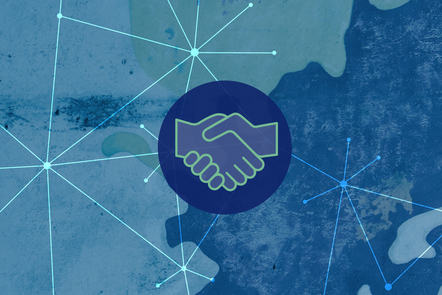
University of Basel
- Start Date: 10 Apr, 2023
- 5 weeks
- Study Content: Videos
Take a look at the world of social entrepreneurship and familiarize yourself with new concepts and methods of entrepreneurship.
Course Fee: Free
Certificate Cost: See Fees and Eligibility
Introduction
Introduction Video
Course Description
This course is made available through the eLearnAfrica and FutureLearn partnership.
Learn about economic tools to become a successful social entrepreneur.
Nonprofit organizations operate globally in many areas. They address societal issues in fields like health, culture and arts, environment, education and research. With their work, they make a significant contribution to sustainable social and ecological development. This course provides you with the economic tools and knowledge that are needed to become a successful social entrepreneur. It gives you an introduction to the topics that need to be addressed in order to make informed decisions in nonprofits, and it asks you to look upon your own practices in order to critically reflect your learnings.
This course is intended for anyone interested in the topics of social entrepreneurship and dedicated people who work in the nonprofit sector or would like to do so. You don’t need prior knowledge of the economic tools that are needed to apply entrepreneurship in nonprofits - this course addresses non-professionals as well as NPO executives and employees and students of economics and management at BA and MA level.
Certificate cost may vary. You will be redirected to the host page for cost and payment options.
University of Basel
The University of Basel has an international reputation of outstanding achievements in research and teaching. Founded in 1460, the University of Basel is the oldest university in Switzerland and has a history of success going back over 550 years.
As a comprehensive university offering a wide range of high-quality educational opportunities, the University of Basel attracts students from Switzerland and the entire world, offering them outstanding studying conditions as they work towards their Bachelor’s, Master’s or PhD degrees. Today, the University of Basel has around 13,000 students from over a hundred nations, including 2,700 PhD students.
The University of Basel has seven faculties covering a wide spectrum of academic disciplines. At the same time, the University has positioned itself amidst the international competition in the form of five strategic focal areas: Life Scientists, Visual Studies, Nanosciences, Sustainability and Energy Research and European and Global Studies. In international rankings, the University of Basel is regularly placed among the 100 top universities in the world thanks to its research achievements.
The University of Basel has deep roots in the economically powerful and culturally rich Basel region. The University also works closely with domestic and international partners to make relevant contributions to the advancement of the sciences and society. This also means that the University of Basel pays particular attention to aspects of sustainability, equal opportunity and knowledge transfer.
This institution is available on eLearnAfrica through partnership with FutureLearn.
COLLABORATION POLICY
By enrolling in a course on or through eLearnAfrica, you are joining a special worldwide community of learners. The aspiration of eLearnAfrica is to provide anyone with an internet connection access to courses from the best universities and institutions in the world and to provide our learners the best educational experience internet technology enables. You are a part of the community that will help eLearnAfrica achieve this goal. eLearnAfrica depends upon your motivation to learn the material and to do so with honesty and academic integrity. In order to participate in eLearnAfrica, you must agree to the Honor Code below and any additional terms specific to a class.
ELEARNAFRICA HONOR CODE PLEDGE
By enrolling in a course, program, or degree hosted on the eLearnAfrica App or Site, I agree that I will:
-
Complete all tests and assignments on my own, unless collaboration on an assignment is explicitly permitted.
-
Maintain only one user account and not let anyone else use my username and/or password.
-
Not engage in any activity that would dishonestly improve my results, or improve or hurt the results of others.
-
Not post answers to problems that are being used to assess student performance.
-
Abide by any and all requirements of the eLearnAfrica Participants as may regard the expectations of civil or academic behavior or of community standards.
VIOLATIONS
If you are found in violation of the Terms and Conditions or Honor Code, you may be subject to one or more of the following actions:
-
Receiving a zero or no credit for an assignment;
-
Having any certificate earned in the course withheld or revoked;
-
Being unenrolled from a course, learning program or degree program; or
-
Termination of your use of the App and/or Site.
-
Additional actions may be taken at the sole discretion of eLearnAfrica and eLearnAfrica course providers.
No refunds will be issued in the case of any corrective action for such violations.
Honor code violations will be determined at the sole discretion of eLearnAfrica, the Partners, or Members. You will be notified if a determination has been made that you have violated this honor code and you will be informed of the corresponding action to be taken as a result of the violation.
CHANGING THE HONOR CODE
Please note that we review and may make changes to this Honor Code from time to time. Any changes to this Honor Code will be effective immediately upon posting on this page, with an updated effective date. By accessing the App and/or Site after any changes have been made, you signify your agreement on a prospective basis to the modified Honor Code and any changes contained therein. Be sure to return to this page periodically to ensure familiarity with the most current version of this Honor Code.
Effective Date: September 22, 2016
